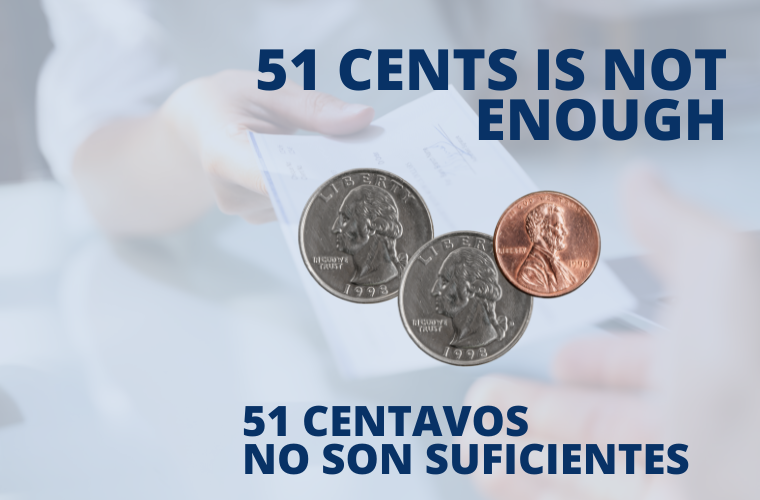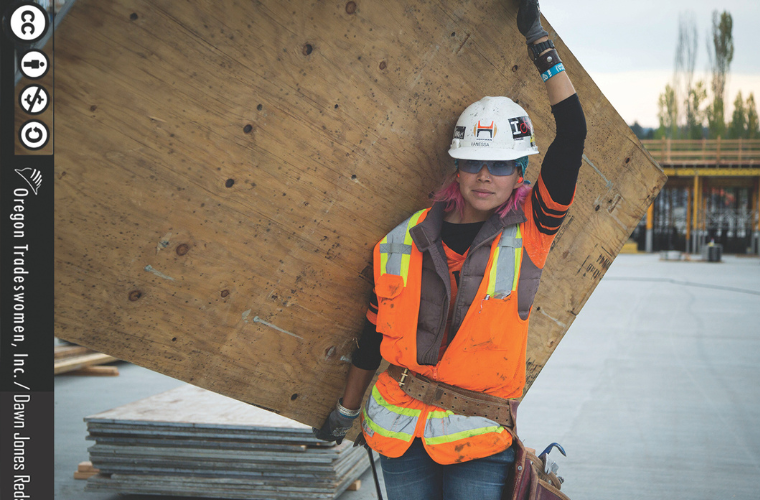

We Listened to Black & Latinx Women. Here’s What We Learned.
We began with the goal of listening.
Starting in 2020, we noticed countless politicians, media outlets, and “experts” speaking about the pandemic’s disproportionate effects on Black and Latinx women — unemployment, lack of affordable childcare, discriminatory healthcare. Story after story featured faceless statistics.
“These working moms are doing everything right but it’s not enough. The economic precarity these families are experiencing is the result of deliberately insufficient economic policies that have not penetrated far enough into these communities.”
- Delia Coleman, Deputy Director
There was a notable lack of Black and Latinx women’s actual voices from these articles. Where were their words, their individual experiences, in the conversations about them? That’s where Family Voices Amplified came in.
We surveyed 637 Black and Latinx women in 16 cities across the country: 67% are Black, 14% are Latinx, and 12% are Afro Latinx. 70% are parents or guardians. But numbers can’t paint the full picture. So we also held a series of Kitchen Table Conversations, asking these women to tell us in their own words: what’s going on? What worries you most?
“While white men, as well as higher-earning white women, are returning to some form of normalcy, low-to-middle income Black and Latinx breadwinners have been set years behind in their careers and financial goals.”
- Noreen Farrell, Executive Director
The results were twofold: we’re amplifying Black and Latinx’s voices on the issues currently affecting them, and we’re using their top concerns to guide our legislative and policy work in 2022 and beyond.
Here’s what we learned.
This project received community outreach support from National Black Child Development Institute, and research support from Insight Center. View the full Family Voices Amplified report here.
On Work and Opportunity
“You have to pick which quality of life you want, but you just can’t have a quality life overall.”
- Angela, Atlanta
Key stats
- 86% of survey respondents experienced one or more of the following because of the pandemic: layoff, furlough, decrease in hours or wages.
- 92% delayed a career change/advancement or obtaining healthcare due to changes in economic circumstances.
- More findings
On Childcare
“Childcare is just too much. It’s hard to cover both rent and childcare.”
- Arielle, Dalton
Key Stats
- 87% of those with childcare responsibilities said childcare disruptions led to disruptions at work.
- 84% expect childcare responsibilities will delay plans that could improve their financial security.
- More findings
On Debt
“I have to start paying my student loans, that’s like a mortgage within itself.”
- Chondra, Sacramento
Key Stats
- 85% of respondents took on additional debt since the pandemic began.
- 84% agreed debt burden is a significant source of stress in their life.
- More findings
On Generational Wealth
“I feel like there is no long term help.”
- Ashley, New York
Key stats
- 50% say their income is barely enough to make it.
- 57% do not feel confident they will be able to pay off their debt with current or future income.
- More findings
On Quality of Work
“And even when I returned to work, I went to work in fear.”
- Shelley, New York City
Key stats
- 83% said their current or most recent work experience came with: inadequate pay and benefits, unreliable hours and poor working conditions.
- 77% experienced one or more of the following forms of discrimination at work: racial, gender, parenting and immigration status.
- More findings
Policy Recommendations
- Pass The Childcare For Working Families Act.
- Raise the minimum wage & eliminate the subminimum wage.
- Reinstate and make permanent the expanded Child Tax Credit.
- Forgive student loan debt. Black women hold an outsized share of student loan debt. Without that debt, they could emerge from difficult economic times in a much stronger financial position.
- Create targeted opportunities in the trades for Black and Latinx women workers. Black and Latinx women do not find current trades opportunities accessible. Community-level partners from their demographics need to be part of the outreach and strategy.
- Reinstate rent forgiveness and mortgage moratoriums. The economic precarity because of rising rent and pressures to carry a mortgage through job losses threatens the stability of Black & Latinx families.
- Increase investments in Universal Pre-K and Childcare initiatives in predominantly Black and Latinx neighborhoods.
- Create a direct asset-building strategy for Black and Latinx families whose capacity to build generational wealth has been deliberately stunted by over a century of racist U.S. economic policy.
- Pass the Paycheck Fairness Act. This would begin to close the racial and gender wage gap as well as incentivize states to improve their pay equity policies, directly benefiting Black and Latinx family breadwinners.
- Pass the John R. Lewis Voting Rights Advancement Act, which is vital to protecting the franchise, generally, and the interests of Black & Latinx communities, particularly.
- Make it easier for workers to unionize, and support legislation that seeks to end racial and gender based occupational segregation.
Read the full Family Voices Amplified report here.
Stay Connected & Take Action
- Get the Latest News & Information Sign up for Email Updates
- Sign Up for Action Alerts Join the Action Team
- Follow Us


